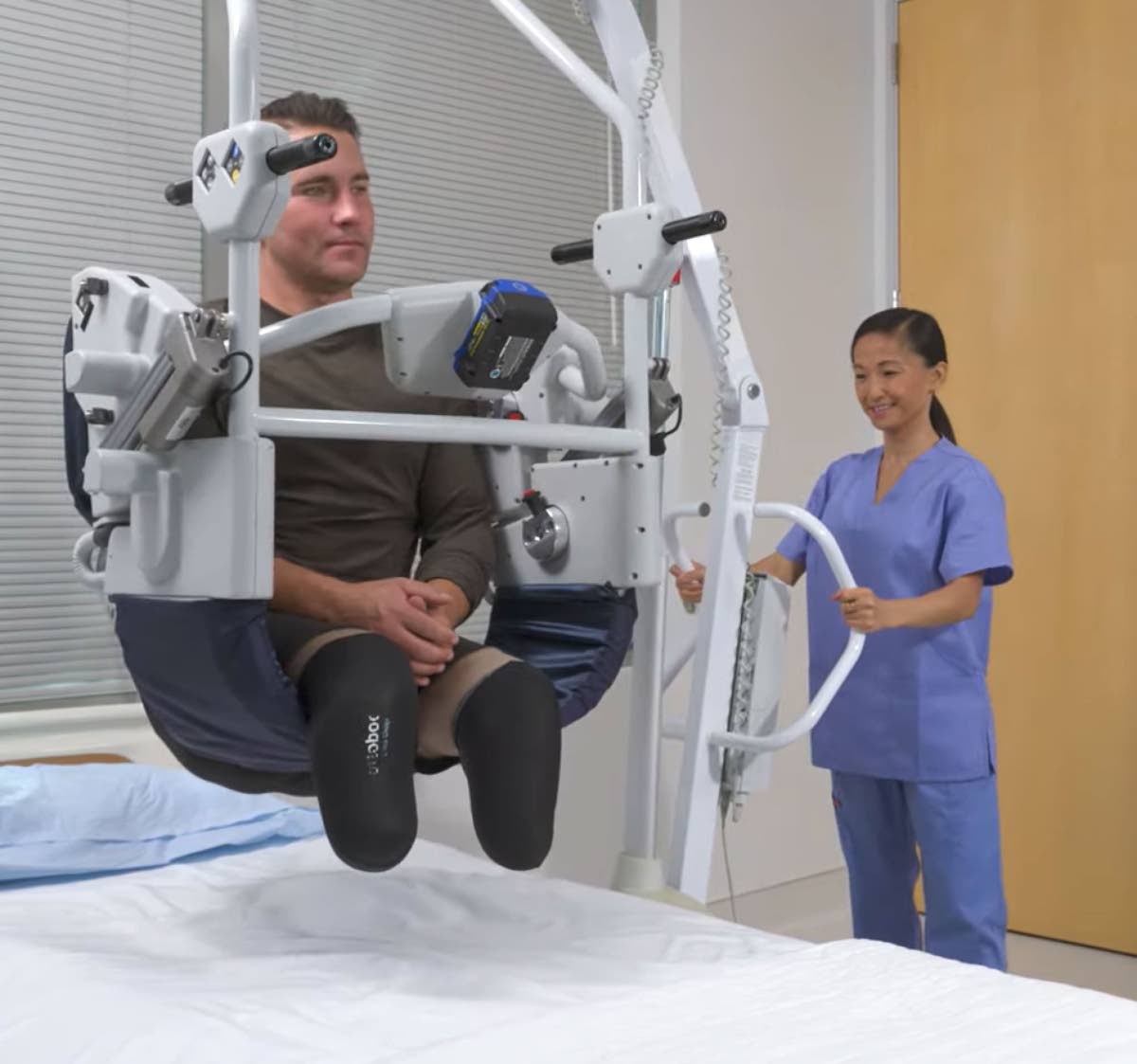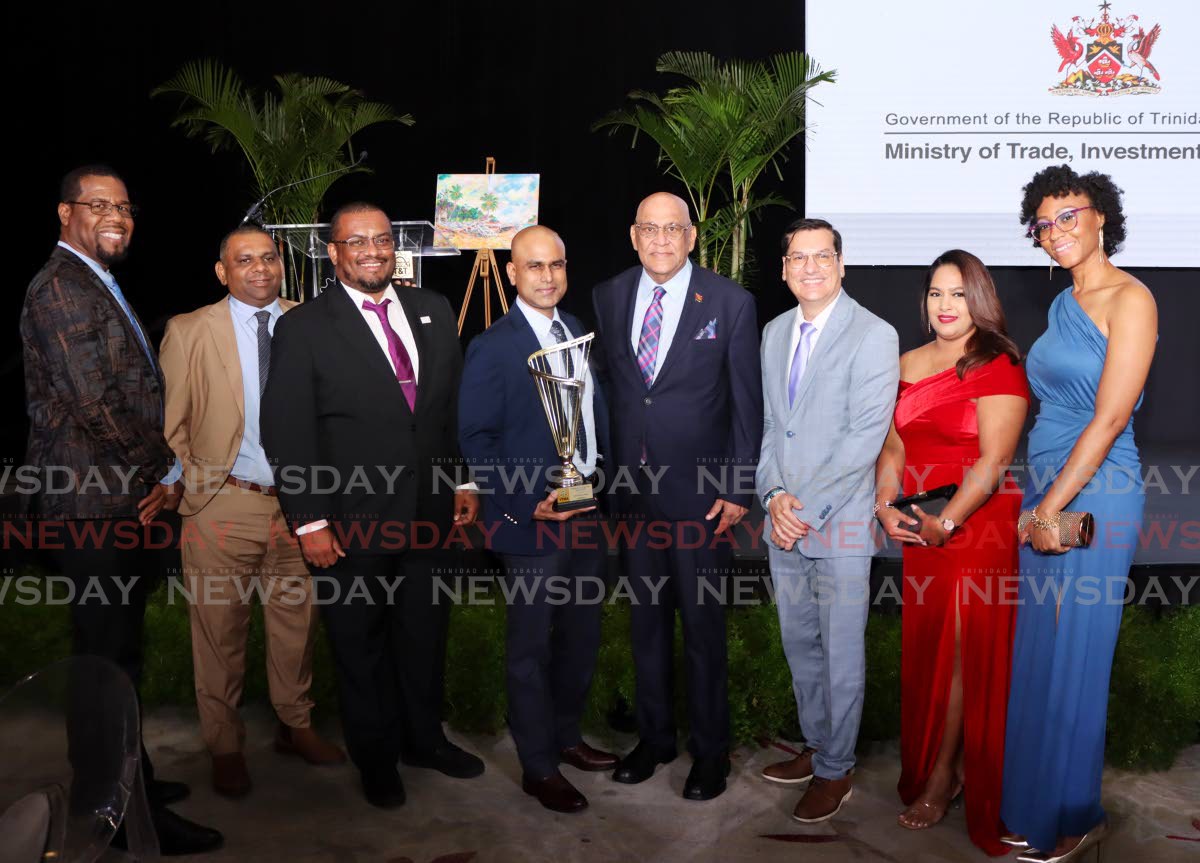In the arid landscapes of northern Kenya, where rain has been absent since April, the Samburu community is turning to an unlikely savior: camels. Chapan Lolpusike, a herder from the semi-nomadic Samburu tribe, recalls the devastating impact of the worst drought in four decades, which wiped out his cattle. ‘We no longer have cattle at home. We only raise camels,’ he said, highlighting a significant shift in livelihood strategies. Camels, known for their resilience, can graze on dry grasses, endure weeks without water, and produce up to six times more milk than cattle, making them indispensable in this climate-vulnerable region.
博客
-

The alarming upsurge in noise pollution offences
In recent months, Trinidad and Tobago (TT) has witnessed a troubling surge in noise pollution, with residents enduring sleepless nights, distressed pets, and deteriorating mental and physical health. Despite existing regulations under the Environmental Management Act and the Noise Pollution Control Rules of 2001, enforcement remains alarmingly inadequate. Offenders, ranging from bars and vehicles to roadside events, continue to operate with impunity, often violating permissible decibel limits without facing consequences. The situation has escalated to tragic levels, as evidenced by the recent death of three-year-old Kemani Gordon, whose parents claim incessant fireworks explosions caused the infant’s distress. Despite repeated calls to law enforcement, no action was taken. This incident echoes the 2015 case of Sudama Saroop, who was jailed for five years after confronting a neighbor over loud music that disturbed his baby. Citizens Against Noise Pollution in TT (CANPTT) reports widespread complaints, with residents citing elevated blood pressure and other health issues due to relentless noise. Despite clear legal provisions under the Summary Offences Act, both the Environmental Management Authority (EMA) and the police have failed to address the issue effectively, often passing responsibility between agencies. CANPTT is advocating for legislative reform, including stiffer penalties for repeat offenders, mandatory closure of non-compliant establishments, and the provision of sound-level meters to police divisions. Additionally, public education campaigns are urgently needed to raise awareness about the harmful effects of noise pollution and the legal responsibilities of citizens and business owners.
-

The business of dignity
As individuals age or face mobility challenges due to illness or injury, the ability to perform basic tasks like getting out of bed or moving to a wheelchair becomes increasingly difficult. Recognizing this universal need for dignity and independence, Neala Persad, Director of Sales and Administration at Access Mobility MedCare, has dedicated her career to providing innovative home accessibility solutions. One such groundbreaking product is the UpLyft, a self-transfer system designed to enhance the quality of life for those with limited mobility. Launched in Trinidad and Tobago on October 8 at the Kapok Hotel, the UpLyft represents more than just a business venture—it’s a mission to restore dignity and independence to individuals facing physical challenges. The UpLyft, constructed with high-carbon steel and an electromechanical screw drive system, can safely transfer individuals weighing up to 330 pounds (136 kg) from a supine position to a wheelchair without the need for nursing assistance. Its user-friendly design allows individuals to operate the system independently, further promoting autonomy. While initially designed for medical facilities, the UpLyft is also available for home use, with leasing options starting at $750 per month. Access Mobility MedCare, headquartered in Canada, has expanded its operations to Trinidad and Tobago, driven by Persad’s passion and strong alliances within the medical community. The company’s broader portfolio includes bathroom modifications, ramps, stair lifts, and porch lifts, positioning it as a leader in mobility solutions. Persad emphasizes the importance of planning for ageing and mobility challenges, advocating for mental health support and strong community networks to complement physical accessibility solutions. The UpLyft is not just a product; it’s a testament to the belief that everyone deserves to live with dignity and independence, regardless of their physical limitations.
-

Shaping a sustainable bioeconomy for Caricom
The Caribbean’s economic narrative has long been shaped by its exports—oil, gas, tourism, and rum. However, the region’s future prosperity hinges on empowering its women, innovators, and small enterprises. This was the central message delivered by Vashti Guyadeen, CEO of the TT Chamber of Industry and Commerce and President of Caribbean Women in Trade (CWIT), at the Caribbean Women in Trade conference in Saint Lucia.
-

Positioning Trinidad and Tobago for the AI economy
As the global economy increasingly relies on cutting-edge technologies like artificial intelligence (AI) and robotics, Trinidad and Tobago (TT) faces a critical question: Is the nation prepared to seize the opportunities these innovations present? The answer, unfortunately, is far from reassuring. Recent data paints a troubling picture of TT’s declining performance in global innovation benchmarks. On the 2024 Global Innovation Index, TT ranked 108th, a significant drop from its peak at 68th in 2008. Similarly, the UNCTAD Frontier Technology Readiness Index shows TT slipping to 86th in 2025, down from 75th in 2021. These rankings highlight systemic weaknesses in industrial capacity and research and development (R&D), with TT scoring 122nd and 130th globally in these areas, respectively. The nation’s R&D expenditure remains below 0.5% of GDP, and patent filings are alarmingly low, averaging just one per year. Despite these challenges, there are glimmers of hope. Ramps Logistics’ AI-driven solution, MAWI, is revolutionizing customs brokerage and generating foreign exchange, while Carib Brewery’s $200 million smart manufacturing initiative marks a bold step toward industrial modernization. These successes underscore the potential for TT to tap into the $2.5 trillion global frontier technology market, projected to grow to $16.4 trillion by 2033. To bridge the innovation gap, TT must prioritize R&D and industrial capacity, strengthen governance frameworks, and support SMEs in adopting advanced technologies. The urgency of these reforms cannot be overstated, as failure to act risks leaving TT behind in the rapidly evolving global economy.
-

TTDRM 2026: Climate risk to regional readiness
As climate risks escalate globally, Trinidad and Tobago (TT) is spearheading a regional initiative to combat these challenges. The TT Disaster Risk Management Conference and Expo (TTDRM), themed ‘Resilience 360: Bridging Knowledge and Action,’ is set to take place from June 1-3, 2026. Organized by PODS Emergency Management Consultancy & Solutions, this event aims to transform climate warnings into actionable resilience strategies, fostering multi-stakeholder collaboration to bolster national preparedness. The conference builds on the success of TTDRM 2024, which emphasized a ‘whole-of-society’ approach, uniting government agencies, NGOs, private sector leaders, academics, and community stakeholders. TTDRM 2026 will focus on systemic risk, advocating for a shift from isolated hazard management to understanding interconnected risks. Drawing lessons from past disasters like Hurricane Flora in 1963, the event will address gaps in disaster risk reduction, particularly for SMEs and vulnerable populations. The conference will feature international and regional experts, including renowned meteorologist Brian Shields, and showcase innovative emergency management products. PODS Managing Director Stacey-Ann Pi Osoria has called for government representation at TTDRM 2026, stressing the need for political will to drive effective disaster risk management policies. TTDRM stands as a platform where local innovation meets regional readiness, ensuring communities are active participants in building resilience.
-

Is AI taking our jobs or not?
The rise of artificial intelligence (AI) is fundamentally transforming the global workforce, challenging traditional job structures and reshaping industries. While the phrase ‘AI won’t take your job – but someone using AI will’ offers a sense of optimism, the reality is far more complex. Companies worldwide are increasingly citing AI as a reason for cutting thousands of white-collar roles. Amazon’s CEO, Andy Jassy, recently highlighted that AI enables teams to achieve more with fewer people, signaling a shift in workforce dynamics.
Jobs are not monolithic but rather collections of tasks. Research from McKinsey & Company reveals that AI can perform 30 to 70 percent of these tasks, altering the economic viability of many roles. When AI handles half of a job’s workload more efficiently, companies face three choices: eliminate the role, merge it with another function, or redesign it into an AI-assisted position. This gradual erosion of tasks is particularly evident in routine cognitive work, such as data entry, report writing, and document review, which AI now manages with near-professional precision.
Gartner predicts that by 2026, 20 percent of organizations will use AI to flatten their hierarchies, eliminating half of their middle-management layers. AI systems are now capable of handling coordination, analytics, and communication—functions traditionally overseen by managers. This shift is creating what McKinsey terms the ‘agentic organization,’ where small human teams supervise networks of AI agents, resulting in leaner companies and faster decision-making.
While AI is automating many tasks, it is also driving job transformation. In medicine, surgeons use AI to enhance decision-making during operations. In law, AI tools save lawyers an estimated 240 hours annually by handling contract analysis and legal research. In marketing, generative AI has reduced content creation costs by 30 to 50 percent. AI acts as a copilot, handling repetitive work so humans can focus on creativity and judgment. However, companies often fail to replace eliminated tasks with new creative roles, leading to workforce reductions.
AI is also reshaping income distribution. According to PwC’s Global AI Jobs Barometer (2025), industries like finance, IT, and professional services are experiencing productivity growth five times faster than sectors like manufacturing or transport. Workers with advanced AI skills command a 56 percent wage premium, while routine professional roles face decline. This dynamic is compressing the middle class and rewarding those who can direct, train, or govern AI systems.
One of the most pressing concerns is the hollowing-out of the career ladder. AI is automating entry-level tasks that once provided young professionals with learning opportunities. Simultaneously, firms are adopting ‘AI-first’ hiring policies, deploying automation before opening new roles. This trend raises questions about how the next generation of managers and specialists will be trained.
Governments are responding differently to these challenges. The European Union’s AI Act classifies workplace AI as ‘high-risk,’ demanding transparency and safety protocols, which slows innovation but protects workers. In contrast, Singapore is rapidly building an AI-fluent workforce through national upskilling initiatives and a government-backed ethics framework called AI Verify.
In conclusion, AI is not eliminating all jobs but is dismantling the structure of work as we know it. Tasks are being automated, hierarchies flattened, and entry points erased. The future will favor individuals and nations that master AI literacy, creative judgment, and the ability to design systems rather than merely operate within them. As companies in the Caribbean and beyond adopt digital tools more aggressively, the question is no longer if AI affects our jobs, but how quickly we adapt. When half of your tasks vanish, what remains is a test of the true value of the human element in your work.
-

Come clean on centre
A recent review of the Draft Estimates for the Development Programme 2026 has unveiled a troubling policy change that has sparked widespread concern. The Infrastructural Development Fund, which previously allocated $15 million for the Construction of a Socially Displaced Assessment Centre, has now completely defunded the project, reducing its allocation to $0.00. This abrupt decision jeopardizes the future of a $50 million facility that was intended to offer a lifeline to the nation’s most vulnerable populations. The center, designed to accommodate at least 200 homeless individuals, aimed to provide essential services such as healthcare, job training, and support to help them reintegrate into society. Its defunding raises serious questions about the government’s commitment to addressing homelessness and social displacement. Richard Ramcharitar, in a letter to the editor, has called on the Minister of People, Social Development and Family Services, Vandana Mohit, to clarify the future of this project. He questioned whether this move reflects a broader policy shift away from prioritizing the needs of the socially displaced. The former administration had previously highlighted a 13.4% increase in homelessness since 2011, with hundreds of citizens living on the streets. The complete elimination of funding for this critical initiative signals a concerning neglect of civic responsibility and social justice. The public is demanding transparency and accountability from the government regarding this decision.
-

TTMA unveils plans for convention centre, exports, SMEs
The Trinidad and Tobago Manufacturers’ Association (TTMA) recently hosted its annual President’s Dinner and Awards at the Hyatt Regency in Port of Spain, celebrating the resilience, innovation, and economic contributions of the nation’s manufacturing sector. The event, held on November 5, 2025, highlighted the industry’s pivotal role in national development, with TTMA President Dale Parson emphasizing its employment of over 60,000 people and its status as a key economic stabilizer. Parson also revealed that the TTMA, in partnership with the government, raised over $5 million in goods and cash within 24 hours to support Jamaica’s recovery efforts following Hurricane Melissa. The manufacturing sector accounts for approximately 18% of Trinidad and Tobago’s Gross Domestic Product (GDP), making it the second-largest employer after the state. Small and medium-sized enterprises (SMEs) were recognized as the backbone of the industry, comprising nearly 65% of manufacturers nationwide. Parson outlined initiatives to enhance SME export readiness, including participation in trade conventions, international missions, and collaboration with the Eximbank. Looking ahead, the TTMA has proposed redeveloping the Caroni Racing Complex into a world-class convention center, aiming to position Trinidad and Tobago as a regional manufacturing and trade hub. The event also featured calls for deeper bilateral collaboration between Trinidad and Tobago and Guyana, with Guyana Manufacturing and Services Association President Rafeek Khan urging the resolution of trade barriers to unlock regional opportunities. Trade Minister Satyakama Maharaj commended manufacturers for their role in economic diversification, announcing ambitious targets to expand exports by $5 billion and attract $9 billion in investments over the next five years. The evening concluded with awards recognizing industry leaders, including Angostura Ltd, which won Exporter of the Year (Large Category), and Novo Farms Ltd, honored as Manufacturer of the Year (Medium Category).
-

Digicel Foundation awards grants to 6 PWD groups
In a landmark initiative aimed at enhancing the lives of individuals with disabilities (PWDs) in Trinidad and Tobago, six organizations were awarded substantial grants to further their impactful projects. The funding was distributed by the Digicel Foundation of TT in collaboration with the United Nations Development Programme’s (UNDP) GEF Small Grants Programme during a ceremony held at Goodwill Industries in Port of Spain on November 4.
